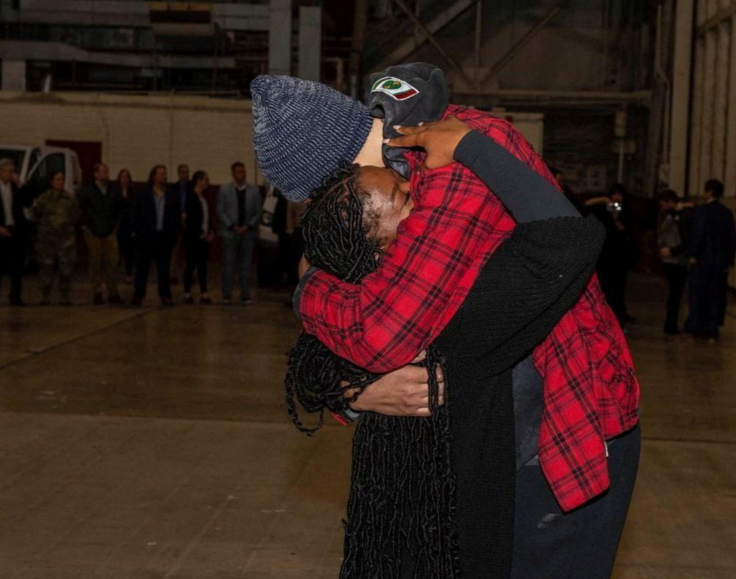Brittney Griner Participating In US Military Program For Ex-Hostages
Brittney Griner has spent the past week in San Antonio, Texas, participating in a U.S. military program with PISA, a program developed to help address the psychological and physical needs of ex-hostages.
PISA, or post-isolation support activities, includes medical checks and repeated counseling sessions, which are all designed to help the ex-hostage "return the recovered person to military or civilian life as expeditiously as possible," according to a manual from the Joint Chiefs of Staff.
The story, originally reported by the Washington Post, comes after Griner spoke for the first time Friday following her release from a Russian penal colony where she was set to serve a nine and half year sentence.
The two-time Olympic gold medalist wrote on Instagram, "The last 10 months have been a battle at every turn. I dug deep to keep my faith and it was the love from so many of you that helped keep me going," she said in her first public statement since returning to the United States. Griner also noted she would play in the WNBA this season.
The manual refers primarily to Department of Defense (DoD) personnel "detained against their will during military operations outside declared hostilities." In this case, Griner is considered a member of the DoD because she was an ex-hostage detained overseas in another country.
Griner was flown to the US Army's Joint Base San Antonio-Fort Sam Houston. Griner was exchanged for convicted Russian arms dealer Victor Bout, and the swap was made in Abu Dhabi. Bout, known as the "Merchant of Death," was convicted in 2011 of conspiring to kill U.S. citizens, among other charges.
The army base has been the first stop for many Americans released from captivity abroad. Trevor Reed, an ex-Marine imprisoned in Russia, arrived there in April. So did members of the "Citgo six," a group of energy executives wrongfully detained by the Nicolás Maduro regime in Venezuela and released in October.

According to the Washington Post, Jorge Toledo, 61, who spent almost five years detained in Venezuela, was released earlier this year. Like Griner, he stopped at the army base to participate in the PISA program. He told the Post that after extensive medical and psychological checks, they helped him adjust to normal life following captivity.
Toledo said PISA helped him decompress from his experience. He divulged that his therapist compared the hostage experience to a can of beer, stating that it you shake a can and suddenly open it, "you're going to have a sort of explosion," Toledo said. But if you "let the pressure go out slowly, you'll have a better result."
The detainees undergoing the program were also encouraged to discuss their concerns about transitioning back to life at home. The final sessions were for military personnel to gather information from the detainees.
Toledo said he hoped the program would help Griner. "People think it's a given that you're going to have a great time when you go back to normal life," he told the Post.
The ultimate release of Griner was a priority for the Biden Administration, but negotiations during the height of Russia's war in Ukraine strained and complicated diplomatic talks. Griner's arrest in February for carrying a THC-infused vape cartridge in her luggage made her the most high-profile American jailed abroad.
© Copyright IBTimes 2025. All rights reserved.





















